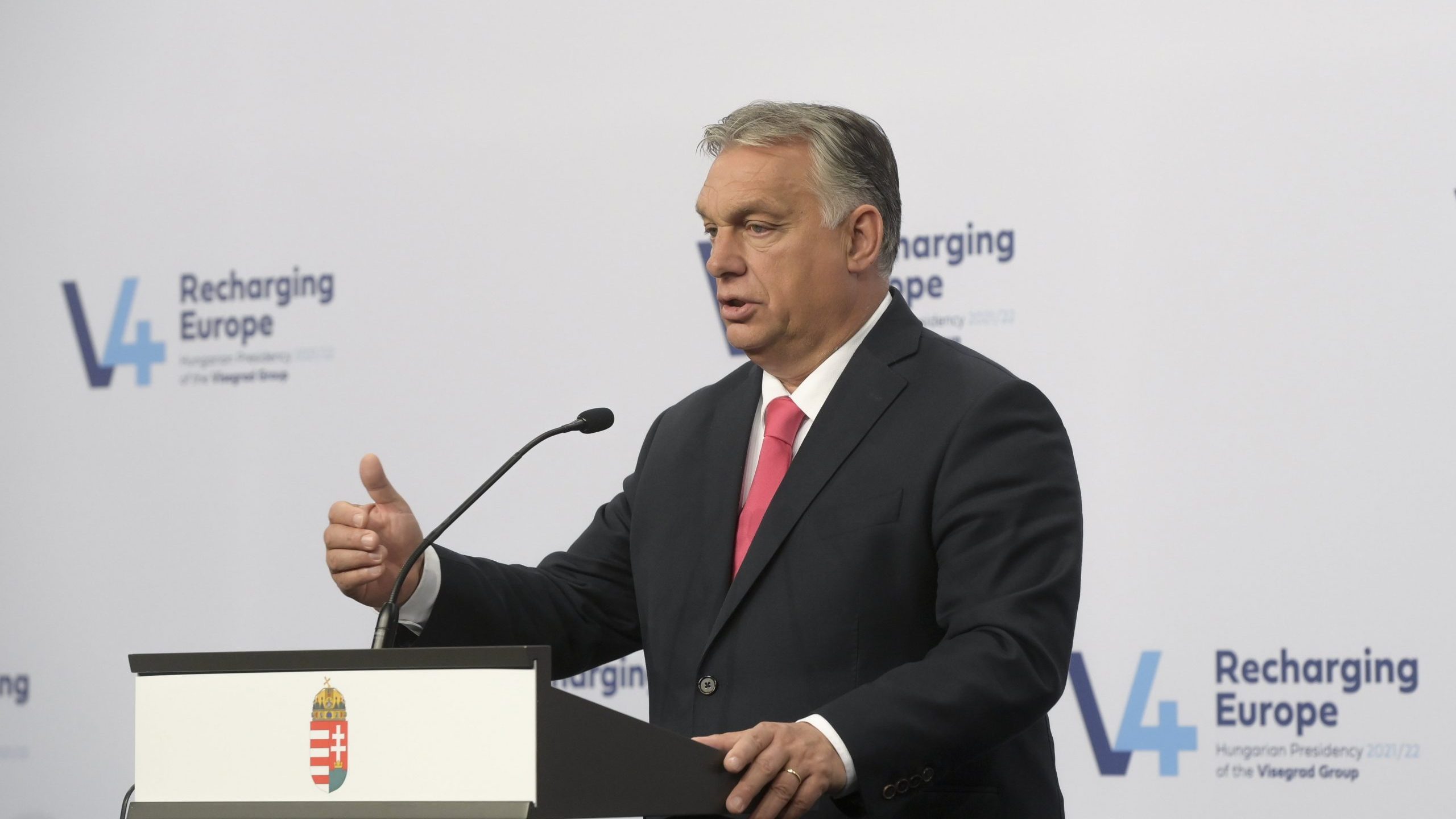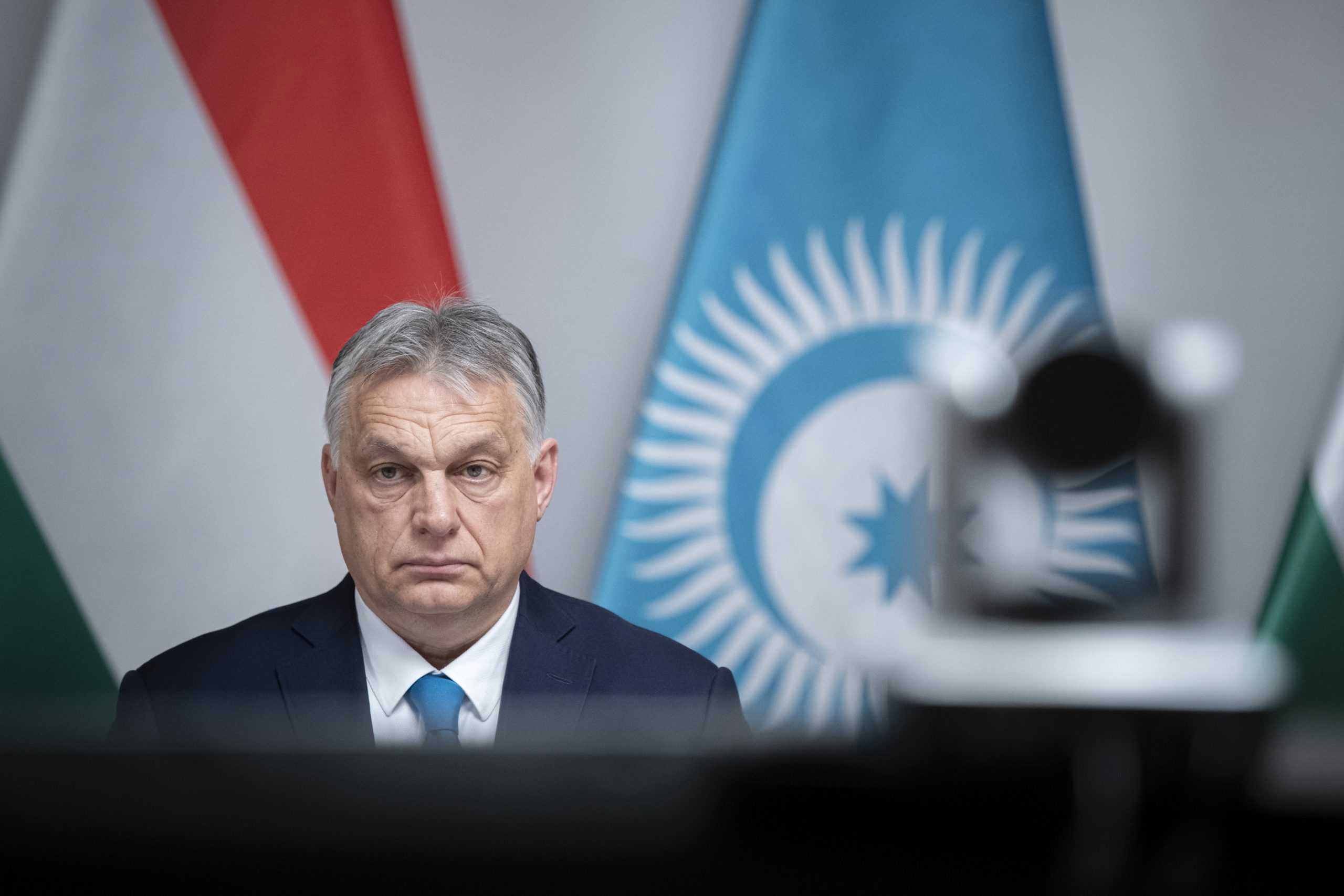
Honourable President, Ladies and Gentlemen,
Welcome to you all. Back in June 2015 I had the privilege of holding the first Hungarian-Egyptian Business Forum with His Excellency President Sisi. I have reread what the Honourable President said then, and also my own words. The date is interesting, because that forum took place before the outbreak of the migration crisis. And I believe that it’s worth recalling that already before that huge invasion both of us pointed out that without stability in Egypt there is no stability in Europe, and without stability in Egypt, there can be no stability in the Mediterranean region either. And we said that it is in the best interests of the whole of Europe – the European Union and within it Hungary – for Egypt to be a successful country. Today this is all I wish to add to that thought: if a destabilised Syria could cause Europe as much trouble as it has, how much trouble would be caused by a destabilised Egypt, without President Sisi? I’m therefore convinced that Europe should speak about Egypt in terms of appreciation, gratitude and respect, and Europe should likewise speak in those terms about the Honourable President. In 2015 we were already welcoming him in Hungary as a man who had accepted the responsibility involved and undertook to make the decisions – even the hardest decisions – in the interest of stabilising his country, Egypt. And so today Hungary is host to a historic figure. At the time we said that Hungary had garnered some experience from the years since 2010. We also stressed that when one seeks to explore new paths for one’s country, it’s very important to carefully choose your sources of advice. And back then I told the President that, had we accepted the advice of some global authorities in 2010 and not chosen to develop a national strategy of our own, the Hungarian economy would not be where it was, but would be much more like Greece than the other countries of the emerging Central European region.
For businesspeople it is perhaps also important that there is a philosophical similarity between the thoughts of the President of the Republic of Egypt and the thoughts that guide the current Hungarian political leadership. I’ll quote one of the thoughts of His Excellency President Sisi. He said that “If God had wanted everyone to be the same, he would have made them so”. he said this in 2015, adding that “The fact that this is not the case – that we speak hundreds of different languages, that we believe in God in different ways, that we organise the lives of our societies in different ways, that everyone is good at something different from others, everyone has a talent for something different – must be seen as the manifestation of some higher will; and when we organise our societies we must respect this fact.” We share this way of thinking. If I translate this into politics, this is how we responded in 2015. In other words, if this is indeed the case, we Hungarians are right to believe that the European political system is not a system that should be introduced throughout the world, and neither do we believe that there are political systems outside Europe that should be introduced in Europe. Everyone must pursue their own path.
Ladies and Gentlemen,
These thoughts expressed to us by the Honourable President two years ago are today more relevant than ever before. It is now obvious to the whole of Europe that Egypt’s stability is key to Europe. Not everyone has yet come to the conclusion that we must therefore adopt a sufficiently flexible and supportive attitude towards Egypt. But we have developed a flexible and supportive policy and attitude in relation to Egypt. We appreciate the Egyptian people’s rejection of any outside interference in their internal affairs. We are therefore convinced that we must respect the Egyptian people’s decisions, and we in the European Union must adopt a more constructive approach. I’m convinced that the European Union should promote sincere dialogue with Egypt, and we should see each other as partners. We know that Egypt is facing historic challenges, and that the Honourable President must simultaneously create internal security, curb acts of terrorism and violence, and build an economic model which restores the greatness of his enormous country of a hundred million people.
We are aware of the diplomatic complications. Hungary is committed to the soonest possible negotiated resolution of the Qatar diplomatic crisis. We are encouraged by what His Excellency President Sisi said today: that in Egypt every citizen has equal rights, and therefore the Egyptian state extends its protection to people of every faith, guarantees their rights, and makes no distinction of any kind among its own citizens on religious grounds. We recognise Egypt’s achievements in curbing migration, and we are sure that in order to address the migration crisis we must conclude a comprehensive agreement with Egypt like those that we have concluded with other countries in the region.
Ladies and Gentlemen,
This is the political context in which your business forum was held, and in which we are seeking to exploit our economic opportunities. Naturally, one can point out that Hungary is a country of ten million people, while Egypt is a country of one hundred million people: the populations differ greatly in size, as do the countries’ geographical areas. Against such a background, can Hungary offer Egypt any kind of opportunities? I’d like to draw your attention to the fact that Hungary is a country of ten million people, and these ten million people are capable of generating annual exports worth 110 billion dollars: ten million people generating exports worth an annual 110 billion dollars! This means that we may well be much smaller than Egypt, but there’s something that we’re very good at. We know how to build an open and export-oriented economy that enables a country of this size to respond flexibly to global demand and capital flows. In recent years The Hungarian economy has strengthened significantly, we have created an investment-friendly and investor-friendly environment, and we have created a workfare economy, which aims to achieve full employment. Earlier, say seven years ago, if one admitted to having the goal of building an economy with full employment, the customary response would be a smile; but this reaction has not been so fashionable since yesterday, when Germany’s Christian Democrats published their election programme, which happens to feature full employment as a political objective. Everyone can see the changes. Up until 2010 Hungary’s economy stumbled from crisis to crisis, but since 2010 it has regained its strength and continuously strengthened further. In 2016 we produced our highest ever export figure, and we achieved our highest ever foreign trade surplus.
At this point, on behalf of all of us it is perhaps right to congratulate His Excellency President Sisi on the economic changes which he has implemented in the Egyptian economy in recent years. Few leaders in the world today would have been able to initiate economic changes of such magnitude and weight, and to adopt momentous decisions such as the ones we see in the Egyptian economy today. In 2010 we said that the word “reform” didn’t quite cover the extent and depth of the changes that we’d need to enact in order to rescue the Hungarian economy, but the changes that President Sisi is bringing about in the Egyptian economy are even more powerful, as regards their depth and weight, than those we implemented in Hungary. So I would like to congratulate the Honourable President on his ability to see these changes through, while preserving political stability.
As regards relations between the two countries, Ladies and Gentlemen, we might be tempted to speak about the factor by which the volume of trade between the two countries has increased. We’ll resist that temptation because, regrettably, the base figures are very low, and while on paper the increase looks good compared with those figures, in reality it means very little. This is the truth. We are now holding our third business forum, and we must confirm that we have yet to achieve a major breakthrough in economic relations between the two countries. Thanks to President Sisi, we have succeeded in establishing a trust-based relationship between the two economies. A political relationship of trust has developed between the two countries, and so I can say that our efforts to date have given us a good starting point for the achievement of a major economic breakthrough. Our office in Cairo is working well, the joint economic committee is also operating, and Eximbank has a credit facility worth tens of millions of dollars for Hungarian businesses seeking to invest in Egypt. But there has still been no breakthrough in terms of volume – we have yet to achieve that. Our talks today centred on our ambition to launch a wave of projects involving Egypt and Hungary on a scale that would increase cooperation between the two countries severalfold. We are looking for the areas of cooperation, and we are looking for an optimal framework for the necessary financial resources. I can tell you that both President Sisi and I are committed to increasing the volume of investments and trade between the two countries severalfold.
In any event, in addition to the economy, but in a way that’s also beneficial for the economy, we agreed on a few issues related to cultural and educational cooperation; and we have some ambitious plans here, the specifics of which we are going to identify and detail over the next few weeks. At this point in time, I would just tell you that Hungary provides one hundred state-funded scholarships for Egyptians, paid for by the Hungarian state within the Stipendium Hungaricum Programme. For the 2017/18 academic year 485 Egyptian students applied for these one hundred scholarships, meaning that demand is five times supply. This shows that in Egypt, among the young generation of Egyptians, there is interest in Hungary, and we will therefore increase the number of scholarships as demand dictates. We are proud that the two nations are cooperating not only in the economy and not only in politics, but also in culture, and thereby laying secure foundations for long-term Egyptian-Hungarian economic relations.
Honourable President,
Thank you for your visit, thank you for being here with us. We look forward to your speech.

